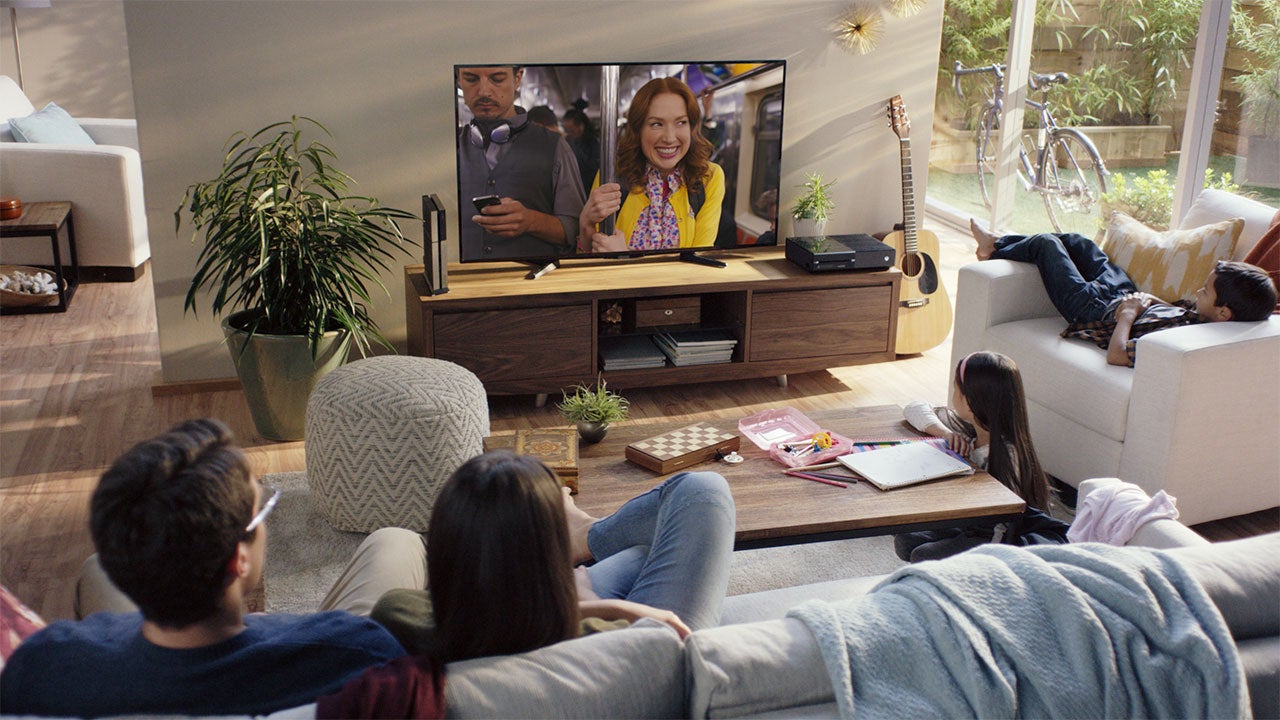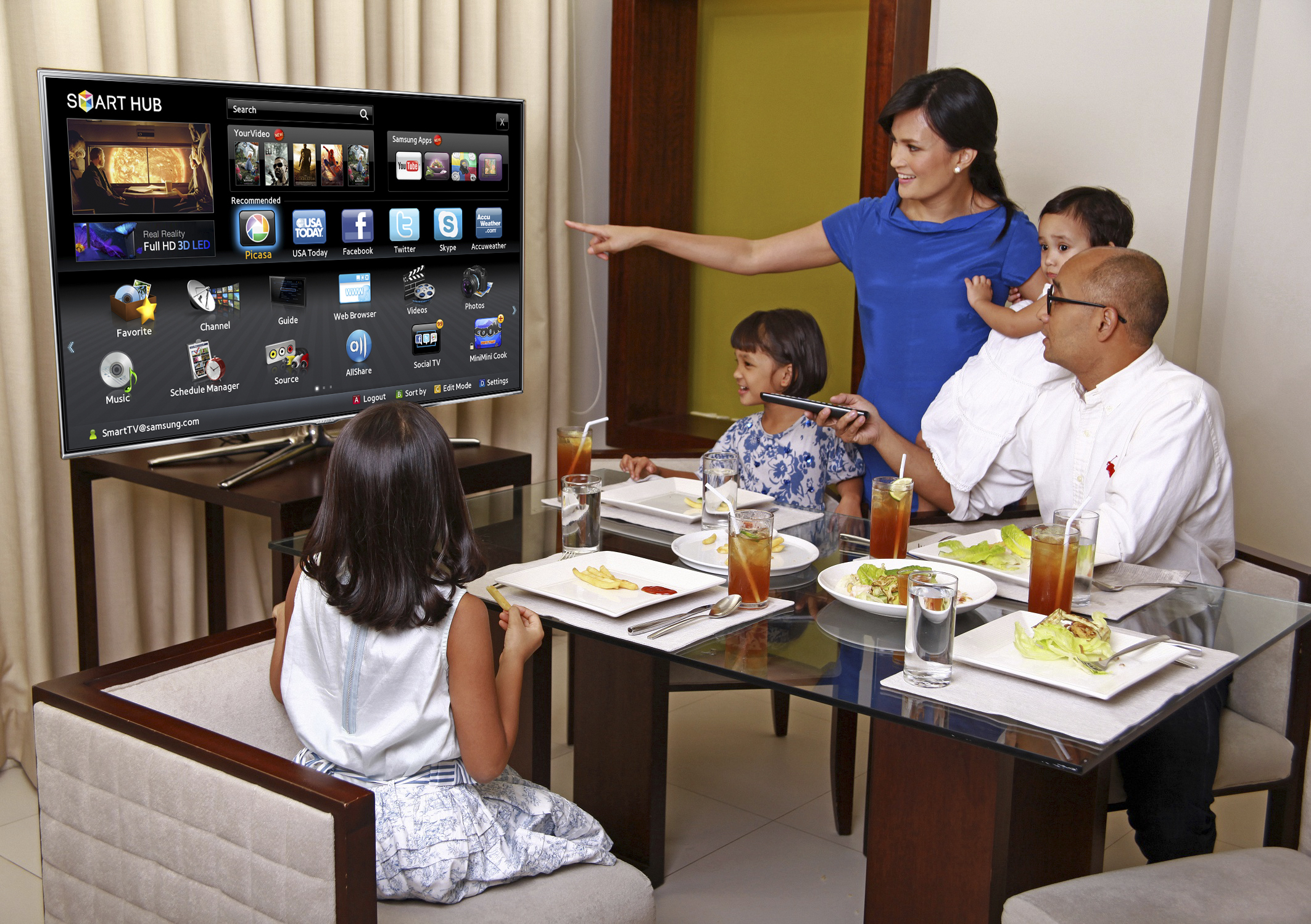Cable vs. Streaming: What's the Difference?

Wed, Sep 01, 2021 12:48 AM
A turf war is currently underway between two powerful competitors: streaming services vs. cable companies. Cable has been available since the 1960s, but streaming-only has only been around for about a decade. Both, however, have created a major quandary for consumers.
While both cable TV and streaming TV are designed to delight you and your family, their high-end packages may easily be perplexing. The only way to get out of this tangle is to weigh their various advantages and disadvantages against your specific requirements.
Are you having trouble deciding on the best TV service? There's no need to look any further. We've collected a comprehensive list of their features and broken down the cable vs. streaming comparison for you, point by point, so you can choose the best service for your needs.
The Ultimate Comparison of Cable vs. Streaming TV
The majority of individuals are unaware of the fundamental distinction between the two.
Cable companies have a dedicated network of coaxial cables that carry hundreds of high-definition television channels to your home. Their dependability isn't cheap, but after you've paid your dues, you can expect long-term contentment.
Streaming services, on the other hand, provide dynamic content through the internet to their clients. On a number of smart gadgets, you can also watch streaming TV. In this situation, having a high-speed internet connection is necessary, which is both a blessing and a curse. Their plans are less expensive than those supplied by cable television, but they also include fewer channels.
Also Read: Save Money on Streaming and Watching on Your Home
Here are a few things to think about while choosing a television service:
Availability of Services
It should be self-evident which service receives our vote in this area. Streaming TV offers material from all over the world. It is not restricted by any geographical boundaries. Take, for example, Netflix, which has a big global audience. Among the younger generation, streaming television is also popular. You won't be restricted by service unavailability as long as you have a good internet connection.
The cable television industry is mostly based on monopoly. In exchange for creating the network, the local cable provider will have an exclusive license to provide service in that specified geographic area. So, while it's true that you won't have to travel far to find a cable provider, their service is still a step behind streaming TV.

Library of Channels
Cable companies supply 200 to 300 channels in their TV packages. In comparison, just a few live streaming TV services have surpassed the 100-channel mark. So, when it comes to the amount and quality of content, cable TV reigns supreme.
Streaming TV services are attempting to fill this need, but they still have a long way to go. They typically fall short of offering live sports channels, which a sizable portion of the American audience needs.
They also need a robust internet connection to provide their information, which can cause outages and buffer due to the fact that internet technology isn't yet flawless. While video interference is not a problem with the cable, it is a problem with satellites. This is why, in terms of content gathering and distribution, cable is superior to streaming.
Overall Pros and Cons of Cable vs. Streaming TV
Here's a quick rundown of the differences between cable and streaming TV services:
| Factors | Cable TV | Streaming TV |
|---|---|---|
| Channel Count | 200+ | 100+ |
| Live Broadcast Networks | Yes | No |
| Video Quality | Consistent 720p, 1080p & 4k | Drops with low data & low network speed |
| Internet Dependency | No | Yes |
| Service Availability | Limited. Depends upon providers’ availability. | Nationwide service is available. |
| Essential Devices | Set-top boxes | Streaming media players or smart TVs with streaming apps |
| Price | High premium packages | Cheaper and economical plans |
| Contracts | At least of a year or two | Month-to-month |
Price Comparison
Is it true that streaming is superior to cable? Let's face it: when it comes to cost, streaming TV still has the upper hand. Though it has fewer channels than cable TV, it is more cost-effective for people who want to save money for a rainy day.
Here's a table of cost comparisons so you can see for yourself how much they differ.
| Streaming TV | Cable TV |
|---|---|
| Netflix: $8.99 to $17.99 per month | Spectrum TV: $44.99 to $94.99 per month |
| Amazon Prime Video: $12.99 per month | Xfinity TV: $49.99 to $84.99 per month |
| Hulu + Live TV: $64.99 to $70.99 per month | Cox TV: $50 to $130 per month |
It's also worth noting that cable companies occasionally offer bundles and specials that might help you save money on your monthly bill while getting more for your money. As a result, it's a toss-up.
Contractual Commitments
The majority of cable TV providers lock you into a contract that lasts at least a year. They frequently boost their bundle rates after that. So, if you choose a cable TV provider and it fails to meet your expectations, you won't be able to easily get rid of it. Those that do not compel you to sign a contract risk exposing you to unpredictably high prices.
Streaming TV, on the other hand, has no such limitations. It does not bind you to a year-to-year agreement. Almost all of them are only available on a month-to-month basis. You can unsubscribe at any time.
Also Read : Is It Worth Bundling Cable, Internet and Phone?
Demographics of the Consumer
Cable TV is still the most popular choice among customers, according to a survey, but that opinion is gradually changing.
-
Approximately 60% of users who use both services are expected to abandon cable TV in the future in favor of streaming services.
-
A quarter of individuals choose cable TV over satellite because they can't afford to compromise on quality. They value the ability to skip delays and low-resolution content.
-
Consumers over the age of 60 make up half of those who say they solely watch cable TV.
-
Only roughly 27% of consumers between the ages of 18 and 29 favor streaming TV.
-
31% of 18 to 29-year-olds watch both shows.
As a result, age is a significant factor. Streaming TV appears to be gaining popularity among the younger population, as well as those who utilize both services.
The million-dollar question today is whether to go with cable or streaming. The ultimate decision is based on your specific requirements. Subscribing to streaming TV services is a good option if you don't want to spend extra money on leisure. You receive not only low-cost plans but also contract-free flexibility. You have the right to change your mind at any time. By testing out the streaming services first, you have very little to lose.
However, there is no need to be concerned if your internet connection is extremely poor. Like hundreds of other customers, you choose cable television. If you have a large family, cable television is the best option for you. Call (833) 908-3833 immediately to find out about the best cable options in your area.
Also, Read: Some Pointers for Choosing the Best Wi-Fi Router for Your Home
Featured Plan

Bundles starting from $64.99/mo.
Optimum internet plans offer 1000 Mbps of ultra internet speed with Altice Fibe. You will be able to enjoy 420 plus channels in 4K ultra HD. Optimum is the fourth-largest cable provider in the United States.
View More Deals! (833) 396-32123